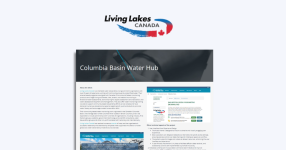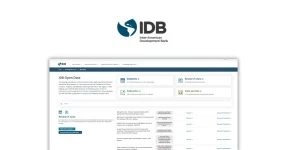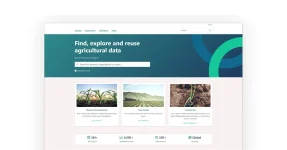The challenge for individual agencies to develop data access methods that strike the best balance between data confidentiality, protecting privacy, maintaining data quality and releasing data that’s interpretable, relevant and actually valuable to users, now and in the longer term: that’s a big ask without direction.
Open data is at the core of an ideal data system where we’ll see the integrating of data from an array of sources—private, public and community, business and household; cross-sectional and longitudinal, survey and administrative, national and sub-national. We’re at the point now where all the leading pundits agree, this new approach to collecting and sharing data will permit business dynamics as well as G2C and C2G to be enhanced in myriad and even globalised ways, but committing the time and resources to conceptualising, let alone realising those opportunities, is assumed by many to be far too daunting a task. How do we leverage the potential of our data, for our benefit and for the good of all? Opening up data, it is feared, is nothing but a big drain followed by a flurry of downloads in the short term. Without the right holistic forecasting of its possibilities Agencies are handicapped by the one big fear that looms ever perilously. It’s the sinister mainstay of accountability: the fear of getting it wrong.
There are three key ingredients to negating such fears.
1. High level policies and guidelines need to be created
Analysts need to be engaged to help develop high level policies and guidelines. This could be Whole of Government or, where necessary jurisdictional but it’s important not to leave it in the hands of bureaucrats alone. You have to go big picture. You have to think beyond any immediate impact to service delivery.
We hardly need to make the case anymore. There are a number of evidence based reports on the value of open data now published, not to mention high value data sets, data publishing best practice…. there are case studies galore, and advice across a number of lessons learnt. All of this provides enough evidence for analysts to now do direct work within industry segments and model the expected impact of shifting Government operations at a policy level. Open government and open data are being mandated to varying degrees across many jurisdictions but assistance with econometric modelling is crucial. Perhaps an Open data consultants Panel or at the very least a Multi Use List could provide a good starting point.
2. The public sector needs more digital leaders
Enter, the Digital Transformation Office (DTO). The DTO will become an Executive Agency on 1 July 2015. I have high hopes for the DTO. Their agenda is all about streamlining service delivery, digitally, with a customer focus. Not specifically on enabling a shared data model, but, the whole thing is underpinned by a drive to empower citizens. In this regard streamlined digital services and open data are congruent pursuits. Also, the startup-esque nature of this new agency could herald the beginnings of a new style of end user focussed bureaucrat. It’s a gamble: introducing yet another office churning out rules is one thing; but stacking it with a new breed of digital bureaucrats, well that’s virtually unprecedented. But the public service is changing (identifying and meeting head on its own shortcomings in service delivery to this extent is testament to that). We also need to see more digital leaders being employed, trained-up and promoted within other agencies too.
3. Open collaboration for open data
In the current long-term business environment, a highly effective APS institution is one which works effectively with other sectors and jurisdictions, including the private sector, not-for-profits, states and local government.
In 2015 ‘collaboration” for government is no longer just another word for ‘paying lip service’. If you look at the leadership and core skills strategy refresh for 2014-2015 you’ll see that the APS has identified the need to be more effective via nurturing opportunities for collaboration. We are seeing this collaborative mindset come into it’s own already with encouragement from Minister Turnbull to build on Public-Private partnerships and the WoG emphasis we see in programs like data.gov.au and govCMS. The aforementioned DTO is set to further boost this collaboration ethos.
Community and not for profit groups funded by sponsors from industry, research and academia and individuals with domain experience on open data, knowledge systems, community engagement and humanities are also well placed to partner with Government agencies at this time. Similarly as with Private partnerships such groups can save the Government money. One reason why budgets are lowered is simply that the cost of generating innovation within Government is higher than it is in the private sector. The cost of innovation within community groups supported by volunteerism is lower again. So now the opportunity exists to tick that collaboration box while also trimming back expenses via public-private partnerships with groups like Code for Australia, GovHack teams, Open Australia, ODI, OKAU and many others.
Community and Private sector involvement across the whole process of releasing data enables that invaluable sense of ownership. When we own something, we want it to be right and we want to see it thrive. In some cases the government can spend millions to sustain a dataset which is 70% correct. Sharing it, even with that deficiency, empowers the community to fix the data itself. The Government role then shifts to becoming more of a subscriber and contributor rather than the sole owner.
For open data this longevity is further promised via supporters continually seeking a range of improvements: the best platforms for sharing, the best Apps, the best forecasting. Ownership will keep the conversation alive.
Next week I will be at the International Open Data Conference (IODC) in Ottawa to moderate a sharing session on data publishing methods. The IODC will be a unique opportunity to collaborate on creating a map of best practices within the area of data publishing.
For details, you can review the session information on www.opendatacon.org.



